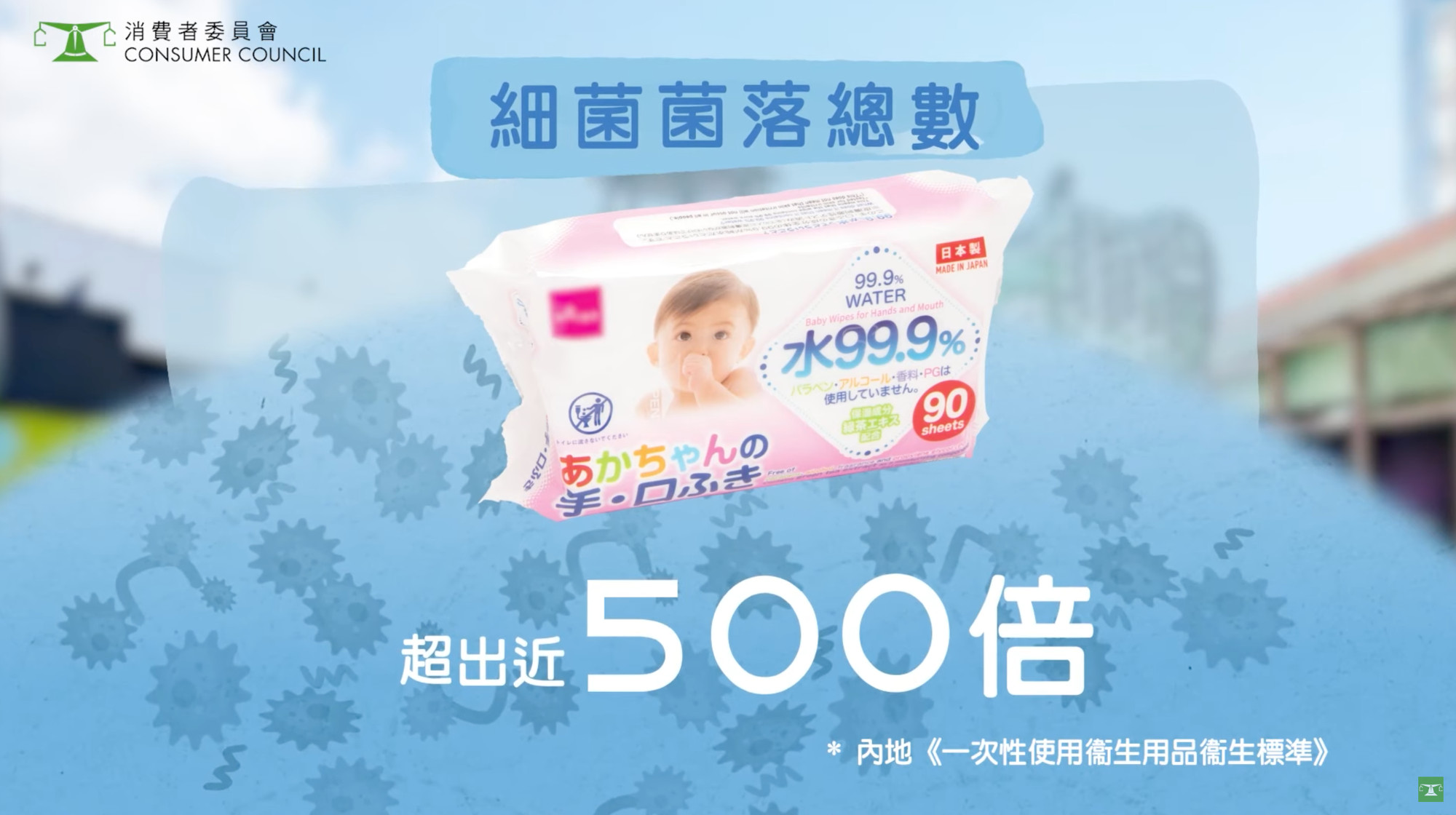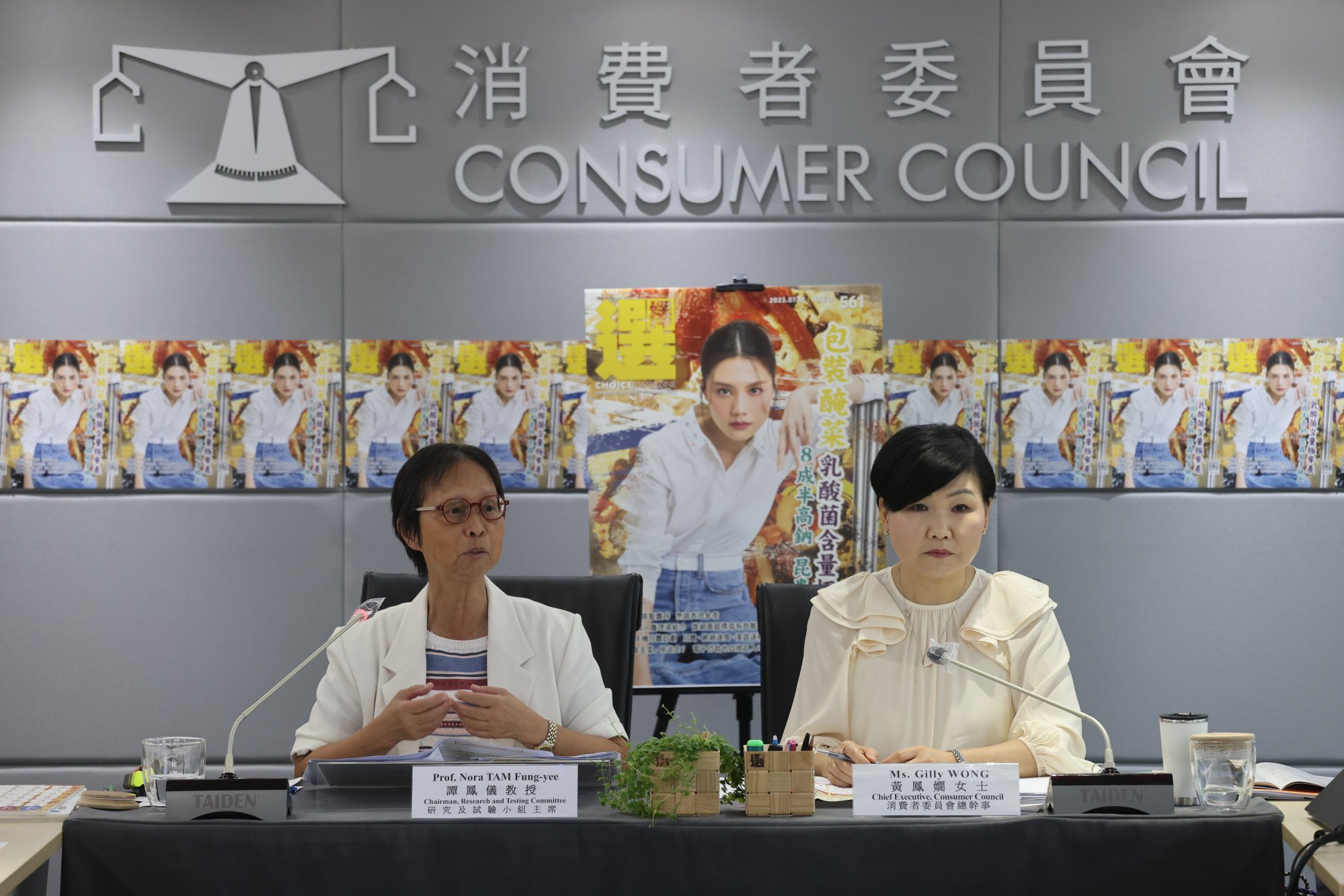
Hong Kong watchdog finds bacteria in Japanese wet wipes product exceeds mainland Chinese safety limit by 500 times
- Consumer Council tests 20 different types of wet wipes available on market, urges residents to avoid those with high bacteria count
- Allergy-causing chemicals and preservatives detected in two products
Hong Kong’s consumer watchdog has found that bacteria levels in a Japanese wet wipes product exceeded mainland Chinese safety limits by nearly 500 times.
Revealing its findings on Tuesday, the Consumer Council said it had tested 20 different types of wet wipes available on the market. Allergy-causing chemicals and preservatives were detected in two of the products, while another was discovered to be slightly more acidic than the mainland threshold.
“We really want to make sure that products do not have a high bacteria content. If they do, then they will cause a lot of problems like gastroenteritis, symptoms like swollen throat and fever, and even conjunctivitis,” said Nora Tam Fung-yee, chairwoman of the council’s research and testing committee.

Tests by the council found that bacteria in “Baby Wipes for Hands and Mouth”, manufactured in Japan by the country’s discount chain Daiso, had exceeded the upper limit of 200 colony-forming units per gram (cfu/g) set by the China Hygienic Standard for Disposable Sanitary Products by nearly 500 times, with a total bacterial count of 100,000 cfu/g.
Daiso told the watchdog that it had removed the products from shelves, without specifying when and where the measure was taken. The Post has contacted the company for comment.
According to Tam, a high bacteria count indicated possible contamination by microorganisms before the opening of the packaging. The council said potential causes included the material or production process being polluted, as well as issues with the length and method of storage after manufacturing.
The tests also found “family-sized wet tissues” from Hong Kong retail chain 759 Store contained 0.0015 per cent of free formaldehyde, an allergen. The chemical, usually released from added preservatives in personal care products, can irritate the eyes and skin, as well as cause inflammation after contact, according to the watchdog.
According to European Union regulations, manufacturers have until 2026 to add a warning label to products that emit more than 0.001 per cent of the chemical under a transitional arrangement.
The council also found two types of parabens, a preservative, in a product called “WET PLUS” from Japanese brand Nepia, but the total amount did not exceed the EU limit of 0.8 per cent.

The watchdog also identified “Baby soft wipes-newborn (3 packs)” from retail chain Mannings as being too acidic with a pH value of 3.2, compared with mainland standards which put the lower limit at 3.5. The council noted high alkalinity or acidity can cause skin irritation, which could lead to itching and inflammation.
Responding to the watchdog, the manufacturer of the 759 Store product said it no-longer sold the item, while Nepia’s agent said it believed the preservatives in its wet wipes came from the liquid in them and that the levels were safe.
The manufacturer of the Mannings product said preservatives in their product functioned best between the pH levels of three and four, adding that usage would not lead to serious health issues.
The council urged consumers to avoid wet wipes that had a high bacteria count, as well as those containing allergy causing chemicals or preservatives.
Tam said residents should consider using wet wipes only when necessary and that they should use cotton or gauze dipped in water instead. She added that consumers could also take into account their actual usage habits when buying wet wipes to prevent wastage and bacterial contamination from the open packaging.

